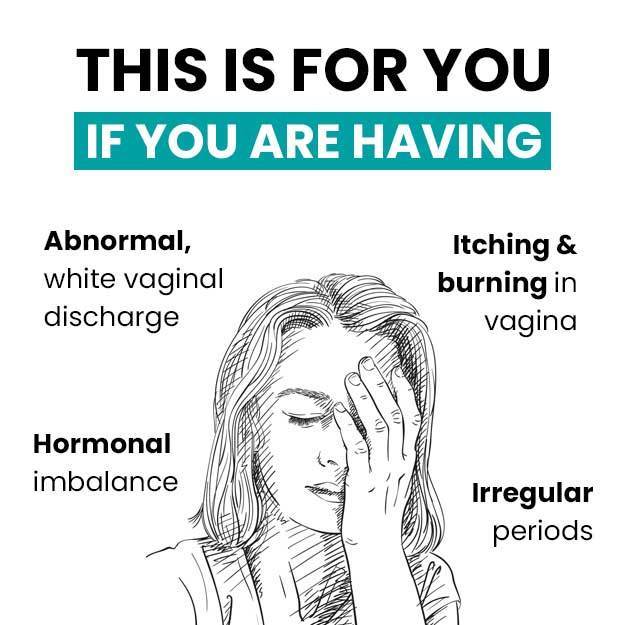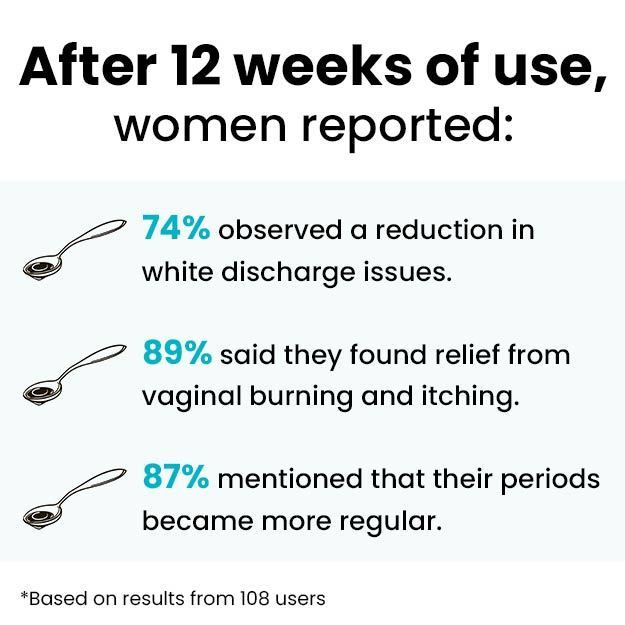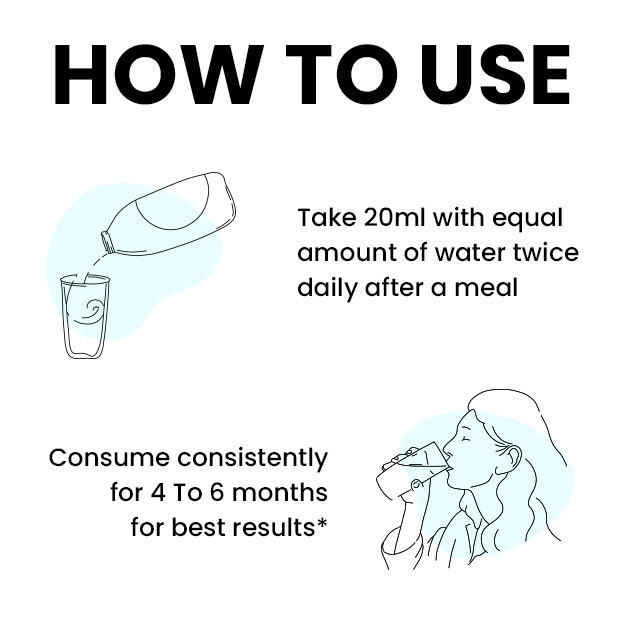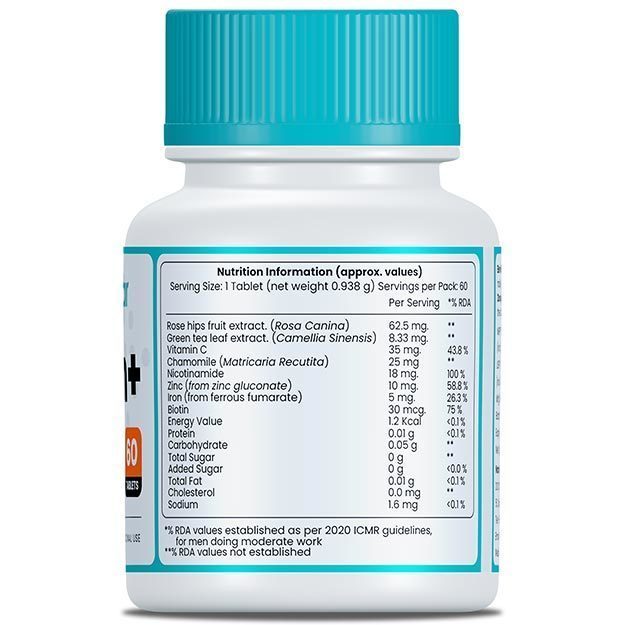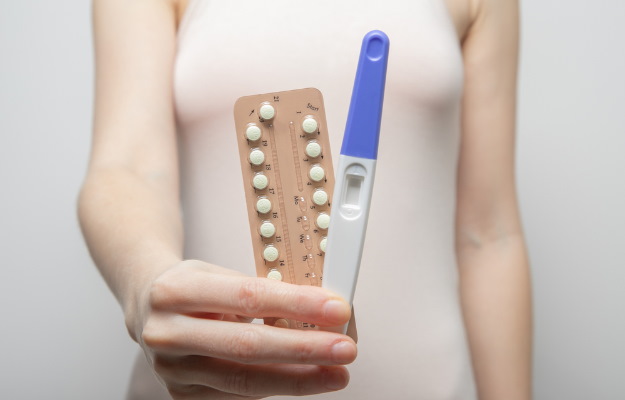That magical moment! For many parents-to-be, hearing their baby's heartbeat for the very first time is like nothing else. It's a quick, little drumbeat that suddenly makes your pregnancy feel very real. One moment you're dreaming of your baby; the next, you're hearing their own special rhythm. It can even bring tears to your eyes and make your own heart feel full!
But what exactly is going on with that tiny heart? When does it start beating? How do doctors listen to it? And what does it all mean? Let's take a simple, friendly walk through the amazing story of your baby's heartbeat during pregnancy. We'll learn about everything from its very first start to how doctors check it, helping you understand this wonderful part of your baby’s journey.
- When the Heart First Starts
- Hearing That First Beat
- Checking the Heartbeat During Pregnancy
- What's A Normal Heartbeat?
- Rare Heartbeat Problems to Watch For
- Heartbeat During Labor and Delivery
- Important Reminder
-
Frequently Asked Questions
- Can I hear my baby's heartbeat at home with a phone app or home Doppler?
- My baby's heartbeat seems slow/fast. Is something wrong?
- Does the baby's heartbeat tell me if it's a boy or a girl?
- My doctor had trouble finding the heartbeat early on. Does this mean there's a problem?
- Why does the baby's heartbeat slow down a bit towards the end of pregnancy?
- Summary
When the Heart First Starts
It might surprise you how early this super important organ begins its job! Even before you might know for sure you're pregnant, your baby’s heart is already forming.
How the Heart Begins
Imagine this: only a few weeks after the baby is made, around 3 weeks after conception, your baby's tiny heart muscles start to squeeze and relax. This is the very first activity! By the fifth week of pregnancy, this developing heart really starts to beat at a rhythm of 90-110 beats per minute (bpm). It doesn't look like a real heart yet, but this is the start of its life's work.
(Read More: How To Take Care During Pregnancy)
First Tiny Beats You Can Hear
The familiar "lub dub" sound of a heartbeat can sometimes be heard as early as the sixth week of pregnancy. While the heartbeat can be found between the sixth and ninth week, many parents hear it for the first time during a regular check-up and ultrasound, often between the ninth and 13th week of pregnancy. This is a truly special moment!
Hearing That First Beat
This is often the doctor's visit you've been waiting for! When you finally get to hear that little rhythm, it’s a moment you won’t forget.
(Read More: Important Precautions During Pregnancy)
Your First Listen: Special Ultrasound
For your very first listen, your doctor will likely use a transvaginal ultrasound. This means they gently place a small, special wand inside you. Why this way? Because early in pregnancy, your baby is still very small and deep inside. This special ultrasound gives a much clearer and closer view of your tiny embryo.
Most often, the heartbeat is first found sometime between 6 and 10 weeks of pregnancy. For some, it might be clear at 6 weeks; for others, it might take a few more days or even a week or two to be easy to hear. Every baby grows at their own pace, so if it's not heard at exactly 6 weeks, try not to worry too much. Your doctor will tell you what to do next.
What It Sounds Like
When you finally hear it, get ready to be amazed by how fast it is! A baby's heartbeat in these early weeks is super quick, often sounding like a tiny, galloping horse or a fast "whoosh-whoosh-whoosh." This speed is completely normal and a very good sign that your baby's heart is growing well.
(Read More: Best Time To Get Pregnant)
If You Don't Hear It Right Away
It can be a bit scary if you go for that first ultrasound and the heartbeat isn't heard right away. But take a deep breath! There are several common and normal reasons why this might happen:
- You Might Be Earlier Than You Think: Your dates might be a little off, and you could simply be not as far along in your pregnancy as you thought. Just a few days can make a big difference at this early stage.
- Your Baby's Position: The way your baby is lying can sometimes make it hard to find the heartbeat.
- Your Body: If you are overweight, or if your uterus (womb) is naturally tilted forward (called an anteverted uterus), it can also make it harder to hear the heartbeat early on.
All of these are normal situations and don't usually mean there's a problem. Your doctor will advise you on when to come back to try and hear the heartbeat again.
(Read More: How many days after your period can you get pregnant?)
Checking the Heartbeat During Pregnancy
As your pregnancy continues, listening to your baby's heartbeat becomes a regular and comforting part of your doctor visits. Different tools are used to check your baby's heart.
The Doppler Tool and Pinard Stethoscope
Your doctor will use a handheld Doppler device or a special hearing tool called a Pinard stethoscope to find your baby's heartbeat. Once they find it, they'll do some calculations to figure out the exact heartbeat rate and rhythm. The Doppler sends out harmless sound waves. When these waves hit your baby's moving heart, they bounce back to the tool with a slightly different sound. The Doppler then converts these changes into the sound you hear! The Pinard stethoscope is a simpler, cone-shaped tool used to listen directly.
(Read More: What is an Ovulation Calculator and How to Use It?)
Regular Check-ups
You'll quickly get used to this! At almost every visit to the doctor, they will check your baby's heartbeat. Checking it regularly helps them to make sure your baby is there and still growing, listen for a steady, healthy rhythm, and notice any big changes over time. For many parents, it’s one of the most exciting parts of each visit, connecting you directly to your little one.
Special Checks – When They're Needed
While the regular checks are great, sometimes more detailed tests are needed. These special checks give doctors a closer look at your baby's heart.
Special Heart Ultrasound (Fetal Echocardiogram)
Think of a fetal echocardiogram as a super-detailed ultrasound that looks only at your baby's heart. It's usually suggested if someone in your family has had heart problems from birth, or if a regular ultrasound showed something a little unusual about the baby's heart. It's also recommended if the mother has certain health problems like diabetes, which can make heart issues a bit more likely. Your doctor might also suggest it if they find a heartbeat under 110 bpm, over 180 bpm, or a consistently irregular rhythm during a regular check-up. This test helps doctors find any heart problems early so they can plan the best care.
(Read More: Can I get pregnant before, on or just after my period)
Baby Movement Test (Non-Stress Test - NST)
As you get closer to your due date, especially in the last few months of pregnancy, your doctor might order a Non-Stress Test (NST). This test checks how your baby's heart rate responds when they move. It’s often used for pregnancies that might have a higher risk, if you're overdue, or if you feel your baby is moving less. During an NST, your baby's heart rate is watched to see how it changes when they move. Doctors look for the heart rate to speed up (accelerate) a certain number of times. This is a good sign that your baby is well-oxygenated and healthy.
What's A Normal Heartbeat?
Hearing that heartbeat is great, but knowing what's "normal" can make you feel even better. Your baby’s heart rate isn’t always the same; it changes as they grow and even throughout the day!
Normal Heartbeat Speeds During Pregnancy
Here’s a simple guide to what heart rate to expect at different stages of your pregnancy:
|
Fetal Age (Weeks) |
Normal Heartbeat Range (bpm) |
|
5-8 weeks |
90-110 bpm |
|
9-10 weeks |
140-170 bpm |
|
11-14 weeks |
Around 150 bpm |
|
15-20 weeks |
Around 140 bpm |
|
21-40 weeks |
Around 130 bpm |
Notice how the heart rate starts lower, goes up for a bit, and then slowly settles down towards the end of pregnancy. This is all perfectly normal!
(Read More: After delivery care for the mother)
Normal Changes in Speed
Just like your heart rate changes when you exercise or rest, your baby's heart rate also has natural ups and downs. A change of 5-25 bpm in your baby's heartbeat is nothing to worry about; this is common and healthy! When the heart speeds up (called accelerations), often happening when your baby moves, it’s a very good sign! It shows that there is no hypoxia (low oxygen) or acidosis (too much acid in the blood), which are good things to know. Sometimes the heart rate slows down (called decelerations). Some slowing down is completely normal and harmless. However, bigger, lasting changes can sometimes point to problems like low oxygen, too much acid, or infections. Your doctor will know how to tell the difference.
(Read More: Ayurvedic Herbs and Practices to Boost Pregnancy Health)
What Can Change the Heartbeat?
Many things can change your baby's heart rate on any given day. Just like us, babies have times when they're active and times when they sleep. Their heart rate will naturally be higher when they're awake and moving, and lower when they're sleeping. Your health also plays a role; if you have a fever, are very thirsty, or are taking certain medicines, it can affect your baby's heart rate. And during labor, your baby's heart rate may slow down very briefly during contractions, which is normal as long as it recovers quickly.
Rare Heartbeat Problems to Watch For
While most babies have healthy heartbeats, doctors also know what to look for if there are concerns. Heart rhythm issues in babies happen in less than 2% of pregnancies, so they are rare.
Here are some terms doctors use if they see unusual heart rates:
- Too Slow (Fetal Bradycardia):
- Less than 100 bpm at 6.3 weeks of pregnancy.
- Less than 120 bpm between 6.3 and 7 weeks of pregnancy.
- Too Fast (Fetal Tachycardia):
- Over 160-180 bpm (over 170 bpm can be a warning sign).
- If it stays over 160 bpm for 10 minutes or more, it can be a risk for swelling in the baby that can be serious.
- Fast and Uneven (Fetal Tachyarrhythmia):
- A fast heartbeat that isn't regular. This can increase the risk of early birth or, rarely, fetal death.
- Wavy Pattern (Sinusoidal Pattern):
- When the heartbeat has very specific, regular small waves of change (like 5-15 bpm up and down) for over 30 minutes, without speeding up normally.
If your doctor sees a heartbeat under 110 bpm or over 180 bpm, or if it's consistently uneven, they might recommend a fetal echocardiogram (the special heart ultrasound) to check for heart problems.
(Read More: Navigating Vaginal Whitening: A Guide to Choices)
Heartbeat During Labor and Delivery
Your baby's heartbeat is watched very closely during labor and delivery to make sure they are doing okay. This monitoring can even help prevent problems like brain damage from low oxygen.
Why It's Monitored During Labor
During labor, your baby's heart rate can change. These changes give doctors important clues about how your baby is handling labor. For example, the heart rate might slow down briefly during contractions, which is normal as long as it recovers quickly. But a longer slowdown (over 3 or 5 minutes) could be a sign for concern. Checking the heartbeat often helps doctors catch problems early. If the heartbeat seems off, they can act quickly to try and prevent your baby from not getting enough oxygen, which is a major cause of problems in newborns.
(Read More: Pregnancy Contractions: Signs, Stages, & Relief)
How Heartbeat is Monitored During Labor
Once you're in the hospital and labor is active (your cervix is opening up and you're having strong, regular contractions), your doctor will want to check your baby’s heartbeat often. This means every 15-30 minutes during the first part of labor, and every 5 minutes when you're in the pushing stage. This is done along with watching your contractions. There are two main ways to monitor the heartbeat during labor.
- Checking at Times (Intermittent Monitoring): A doctor or nurse will use a Doppler tool or a Pinard stethoscope to listen to the heartbeat every 15 minutes or so.
Important Note: While home Doppler tools exist, experts warn that using them without medical training can be risky and doesn't help the mother or baby's health.
- Continuous Monitoring (Electronic Fetal Monitoring): You might be hooked up to an electronic machine that continuously tracks your baby’s heartbeat. This is usually done externally, with two pads (transducers) attached to your belly.
Less often, it can be done internally by attaching a small wire (electrode) to your baby's head through your vagina.
(Read More: Understanding Overdue Pregnancy)
When Continuous Monitoring is Recommended
Continuous monitoring is often suggested if:
- You have a fever.
- You go into early labor (before 37 weeks).
- Your baby has been in the womb for over 42 weeks.
- You had a difficult pregnancy or abnormal baby growth.
- Your labor was started or sped up with medicine (oxytocin).
- There's meconium (baby's first stool) in the fluid around the baby (can be a sign of distress).
- Your baby is in a breech position (feet first).
- You get an epidural for pain relief.
- You have high blood pressure, diabetes, heart disease, or kidney disease.
- Your doctor finds a problem with the heartbeat during intermittent checks.
- You are having twins or more babies.
- You had a C-section in a past pregnancy.
- Your baby seems small during an exam.
During labor, your baby’s heartbeat usually stays between 110 and 160 bpm. Your doctor will let you know what is right for your baby, as it can be a bit higher or lower in different situations.
(Read More: Period-Like Pain During Pregnancy: When to Worry)
Important Reminder
It's crucial to remember that while monitoring the heartbeat during labor and delivery is safe and can save lives, it should never replace good care and watching by your doctor or nurse. These tools are there to help, but having a healthcare professional present and making good judgments is always key. While continuous electronic monitoring has helped reduce newborn deaths from low oxygen, it can sometimes lead to more C-sections or assisted vaginal deliveries (using tools like forceps). This is because it might pick up minor changes that, while not always serious, lead doctors to be extra cautious and intervene.
(Read More: Melasma or dark spots in pregnancy)
Frequently Asked Questions
Here are answers to some questions parents often ask about their baby's heartbeat:
Can I hear my baby's heartbeat at home with a phone app or home Doppler?
It's very tempting, but doctors generally strongly advise against using these devices at home. It's hard to tell your baby's heartbeat from your own or other sounds, which can cause false calm or unnecessary worry. These tools aren't as accurate as those used by doctors, and relying on them might make you delay getting proper medical help if needed. Always leave heartbeat monitoring to your trained healthcare provider.
My baby's heartbeat seems slow/fast. Is something wrong?
A baby's heart rate naturally changes with their activity and sleep. What seems "slow" or "fast" to you might be perfectly normal for your baby at that moment. Doctors look at the average rate, how it speeds up, and any slowdowns, along with your baby's movements. Only a trained healthcare professional can correctly understand the heartbeat patterns. Always talk about any worries you have with your doctor.
(Read More: DIY Skincare: Home Remedies to Reduce Skin Pigmentation)
Does the baby's heartbeat tell me if it's a boy or a girl?
This is a very common and fun old wives' tale, but there's no scientific proof for it. Studies have clearly shown that a baby's heart rate during pregnancy doesn't reliably tell you if it's a boy or a girl.
My doctor had trouble finding the heartbeat early on. Does this mean there's a problem?
Not usually! It's quite common for doctors to have difficulty finding the heartbeat in early pregnancy. This could be because you're earlier along than thought, the baby's position, or sometimes due to the mother's body (like if you're overweight or have a tilted uterus). These are normal situations. Your doctor will usually schedule another check-up soon to try again.
(Read More: Melasma and Iron Deficiency)
Why does the baby's heartbeat slow down a bit towards the end of pregnancy?
It's perfectly normal for the baby's heart rate to slow down slightly as pregnancy progresses. For example, it goes from around 170 bpm at 9-10 weeks to about 130 bpm towards the end of the third trimester. This is part of normal development as their body systems mature.
Summary
The journey of your baby's heartbeat is truly amazing. We've seen how this tiny organ begins to pulse just weeks after conception, growing from a simple tube into a fully formed, four-chambered heart. We've explored how doctors listen in, from early ultrasounds to routine Doppler checks and special monitoring during labor. Understanding what's "normal" – from those rapid early beats to the slight slowdowns in later pregnancy – can bring a lot of comfort and help you feel more connected. While doctors keep a close eye out for any rare concerns, the main takeaway is the powerful meaning behind that sound.
That rhythmic "lub dub" is more than just a medical reading; it's the living soundtrack of your growing baby, a constant reminder of the incredible life developing inside you. It strengthens your bond and fills you with excitement for the day you'll finally meet. Embrace these precious moments, and always remember to chat with your doctor or midwife about any questions or worries you have. That wonderful heartbeat is just the beginning of your amazing adventure into parenthood!
Find Obstetrician and Gynaecologist in cities
- Obstetrician and Gynaecologist in Bangalore
- Obstetrician and Gynaecologist in Mumbai
- Obstetrician and Gynaecologist in Ghaziabad
- Obstetrician and Gynaecologist in Chennai
- Obstetrician and Gynaecologist in Pune
- Obstetrician and Gynaecologist in Delhi
- Obstetrician and Gynaecologist in Hyderabad
- Obstetrician and Gynaecologist in New Delhi
- Obstetrician and Gynaecologist in Gwalior
- Obstetrician and Gynaecologist in Gurgaon
Doctors for The First Beat: A Simple Guide to Your Baby's Heart in Pregnancy

Dr. Ayushi Gandhi
Obstetrics & Gynaecology
4 Years of Experience

Dr. Anjali
Obstetrics & Gynaecology
23 Years of Experience

Dr.Anuja Ojha
Obstetrics & Gynaecology
20 Years of Experience

Dr. Geeta Kulkarni
Obstetrics & Gynaecology
7 Years of Experience
References
- Pildner von Steinburg S., Boulesteix A.L., Lederer C., Grunow S., Schiermeier S., Hatzmann W., Schneider K.T., Daumer M. What is the "normal" fetal heart rate?. PeerJ. 4 June 2013; 1: e82. PMID: 23761161.
- Johns Hopkins Medicine [Internet]. Fetal heart monitoring.
- North Bristol, National Health Service NHS Trust [Internet]. UK; Listening to your baby's heartbeat.
- US Food & Drug Administration [Internet]. Avoid fetal "keepsake" images, heartbeat monitors.
- Galli L., Dall'Asta A., Whelehan V., Archer A. and Chandraharan E. Intrapartum cardiotocography patterns observed in suspected clinical and subclinical chorioamnionitis in term fetuses. The Journal of Obstetrics & Gynaecology Research, 16 October 2019; 45: 2343-2350.
- Safe Motherhood and Newborn Health Committee, FIGO. Cardiotocography, In "FIGO consensus guidelines on intrapartum fetal monitoring" [Internet].
- Hornberger L.K. and Sahn D.J. Rhythm abnormalities of the fetus. Heart (British Cardiac Society), October 2007; 93(10): 1294-300. PMID: 17890709.
- Bloom S.L., Belfort M. and Saade G. What we have learned about intrapartum fetal monitoring trials in the MFMU Network. Seminars in Perinatology, 29 April 2016; 40(5): 307-317. PMID: 27140936.
- National Institute for Health and Care Excellence, UK [Internet]. Intrapartum care: NICE guidelines (February 2017).






















